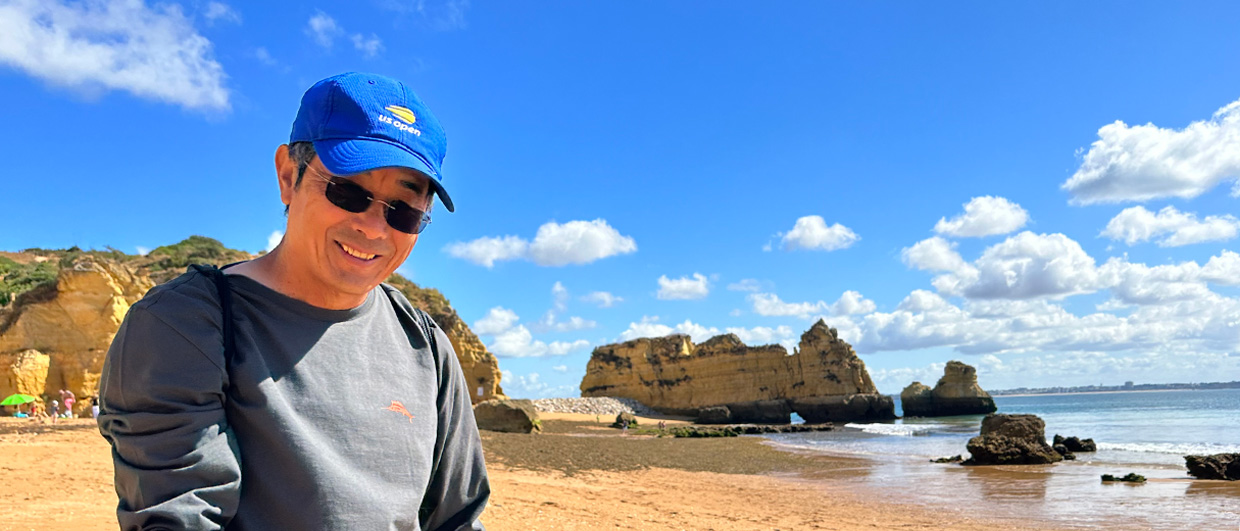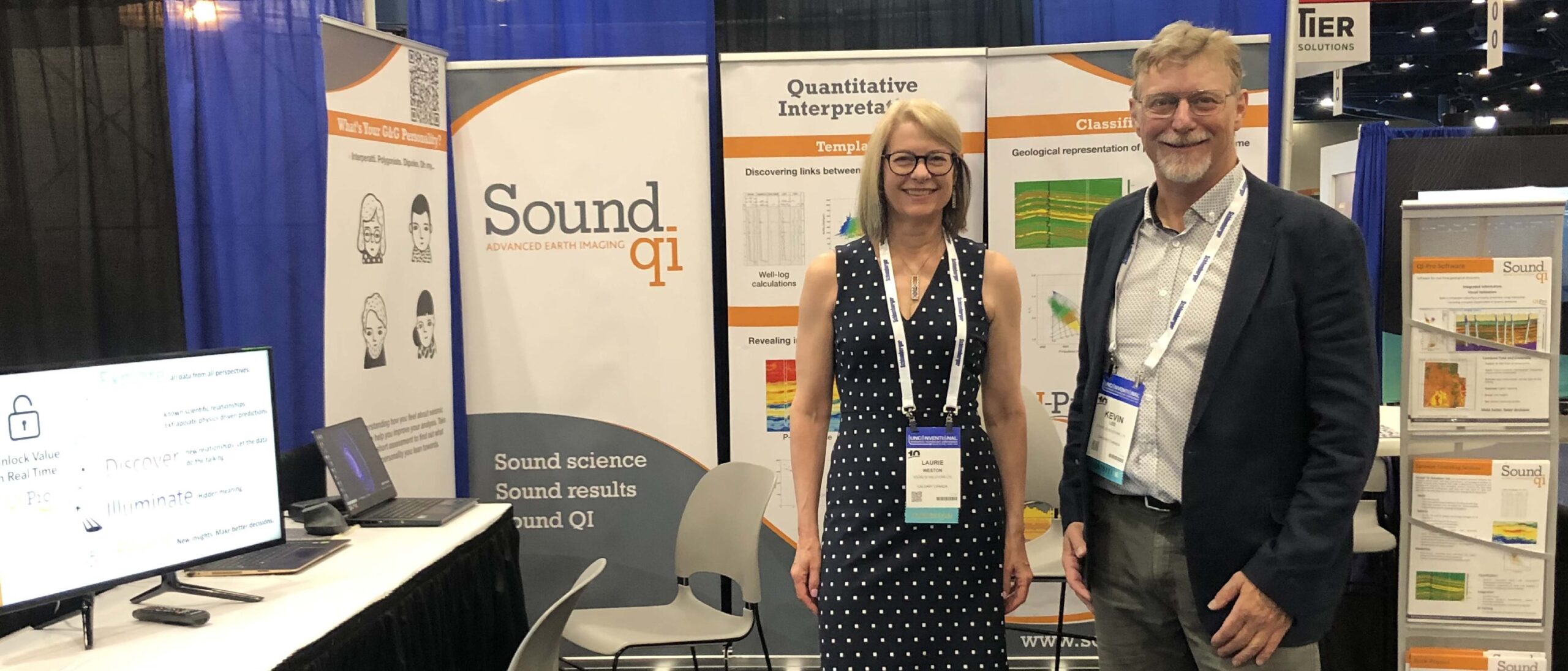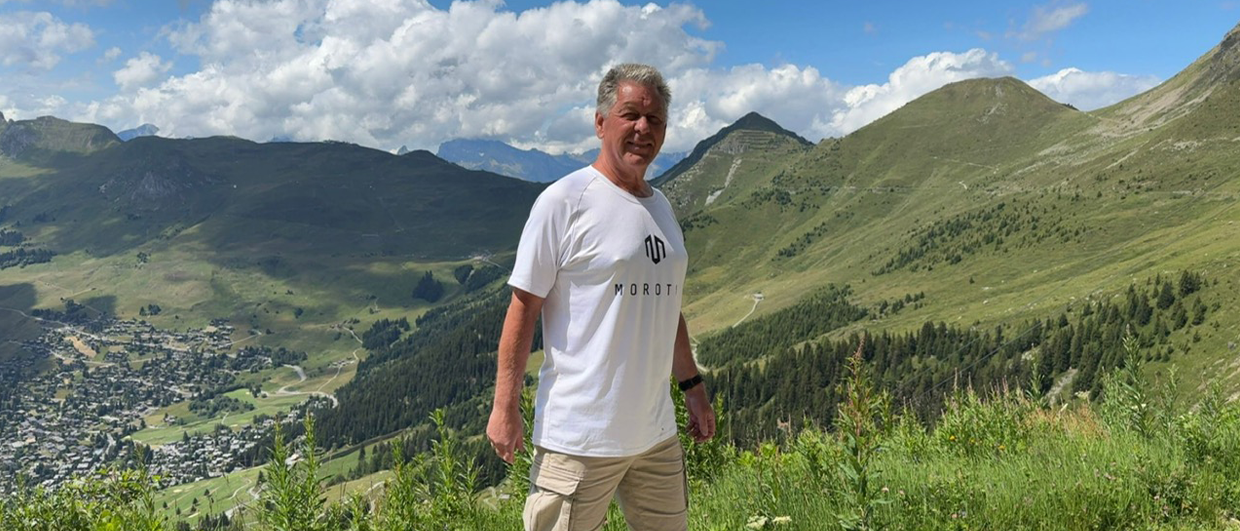A year off between school and university had a huge effect on the career of Kitty Hall, founder of specialist geophysical imaging company ARKeX. “Before starting my degree in Geology at Leeds University, I worked for a year at Huntings, one of the pioneers of airborne geophysics,” she explains. “I was only a data compiler, a fairly menial job – in fact, much of my work, such as contouring, is now done by computers – but I got an introduction to the more exciting side of the business when they sent me to work on an airborne survey in northern Nigeria. I found non-seismic geophysics an interesting and important branch of the science, so after graduating I went back to the business. This was in the really early days of computers, using arcane techniques like punched cards and large reels of tape; we’ve come a long way since then!”
Seeing What’s Possible
Although initially working in data processing with Huntings, Kitty found herself moving gradually into the sales and marketing side, combining her technical knowledge with rapidly growing business skills. “I think my main forte is being able to use my scientific background and experience to see what is technically possible, and then working out how it can be applied to help oil and gas companies in the search for hydrocarbons.”
In 1985, at the tender age of 29 and in the depths of a recession in the oil industry, Kitty and two colleagues, Andy McGrandle and Richard Gleave, branched out on their own. Their new company, ARK Geophysics – the name coming from their combined initials – specialised in both the processing and interpretation sides of gravity and magnetic surveying. “I eventually became the CEO, with Andy responsible for Sales and Richard for Technology; that was just the way our skill set panned out.” Moving their fledgling company to the new town of Milton Keynes in south-east England (“not renowned in the oil industry, but they like new businesses!”), they grew fast, rapidly becoming the leading provider of non-seismic geophysics in the UK.
During the early years of ARK Kitty completed an MSc in Stratigraphy at Birkbeck College – a part of the University of London which offers evening class study. “All the other students were working in oil or service companies around London at the time, and all are now scattered around the world in senior roles. It was a great course for explorationists but I have in the end had little opportunity to apply what I learned – I moved out of the technical side and into management.”
“ARK originally worked exclusively in the marine area, processing gravity and magnetic data recorded during seismic surveys,” Kitty explains. “We also built up interpretation and data management services. We rapidly developed our R&D arm, collaborating with oil companies to develop new software such as ARKFIELD, the first gravity and magnetic interpretation and modelling software package to be tightly integrated with the market-leading seismic packages at the time from Landmark and GeoQuest. This was back in the mid-90s, so we were at the forefront of the move towards seamless systems.”
“I am particularly committed to R&D and technical developments and working out how new data types can provide new solutions,” she adds.
New Developments
“Around the end of 2000, high tech instrument maker Oxford Instruments approached us with the prototype of a gravity gradiometer. This had been developed for the European Space Agency to measure the gravity field from satellites, and Oxford Instruments asked if we could help them to find an exploration application for it. We realised that this offered the possibility of dramatic improvement in the quality of gravity surveying. I consequently spent the early 2000s during the fallout of the dot com fiasco trying to raise money to set up a new company to do this – not an easy task at the time but we eventually succeeded!.”
In 2004, having been CEO of ARK Geo for 17 years, Kitty left the company and started ARKeX as the only service company specialising in both building gravity gradiometers and flying gravity gradient surveys. “We decided to keep the ARK name to continue links with our clients,” she explains. “However, just three years later we bought ARK Geo, to build up our processing and interpretation capability. We now deploy our gradiometer systems for both airborne and marine ‘BlueQube’ surveys. A particularly exciting recent new development has been the take-up of gravity gradient imaging in the shale plays in North America – we are currently flying in the Marcellus and also have a project in the Montney. We look forward to taking this application of our technology to other shale plays around the world.”
Time for New Challenges

Kitty has served as a non-executive board member of Dubai-based seismic company Polarcus since 2008 (and prior to Polarcus its predecessor company, Eastern Echo). “I was interested in seeing business from a non-exec viewpoint. And while seismic is an established technology rather than the new technology world I have been used to, and is on a much larger scale from the companies I have led, there are both significant differences and similarities. It has proved very interesting.”
“I also recently joined the Board of Sevan Drilling, when it separated from its parent company Sevan Marine in May,” she adds. “Having always been focused on exploration, and in particular frontier exploration, it has provided an opportunity to extend my experience into the more downstream part of oil services. It is a very exciting company specialising in ultra-deepwater drilling, with a radical new design of rig.”
Adaptable and Proactive
Another of Kitty Hall’s enthusiasms is for the PESGB (Petroleum Exploration Society of Great Britain), which she considers serves an important role in promoting education in the scientific and technical aspects of petroleum exploration on behalf of its 5,500 oil industry members. “I’ve been a member of the PESGB for 26 years, and was on the PESGB Council in the mid-1990s. Now I have a bit more time I am back on the Council as 1st Vice-President, involved in organising and chairing the London evening lecture programme and public outreach events like the Stoneley Lecture.”
“Having been in the business 35 years, it’s interesting to see how people have grown up and changed – from young ‘high livers’ to responsible senior executives,” she says. “The exploration sector is an enjoyable group of people to be with, and I have found that being a woman in this male-dominated business has generally been an asset rather than a hindrance; with so few of us, people tend to remember you!”
“I can’t really believe how my life in business has turned out,” Kitty concludes. “Like many of my age group in the industry, I have lived through and survived the downturns as well as the good times. Businesses have to float with these, and with relatively small players like ARK Geo and ARKeX you have to be adaptable, and believe in the value of your product. And you need to focus and control costs when the going gets tough, so you are in a position to thrive in the good times.”
“I didn’t set out to do any of this, but I believe in being proactive and taking opportunities when they appear. And I’ve had a lot of good fun on the way!”




